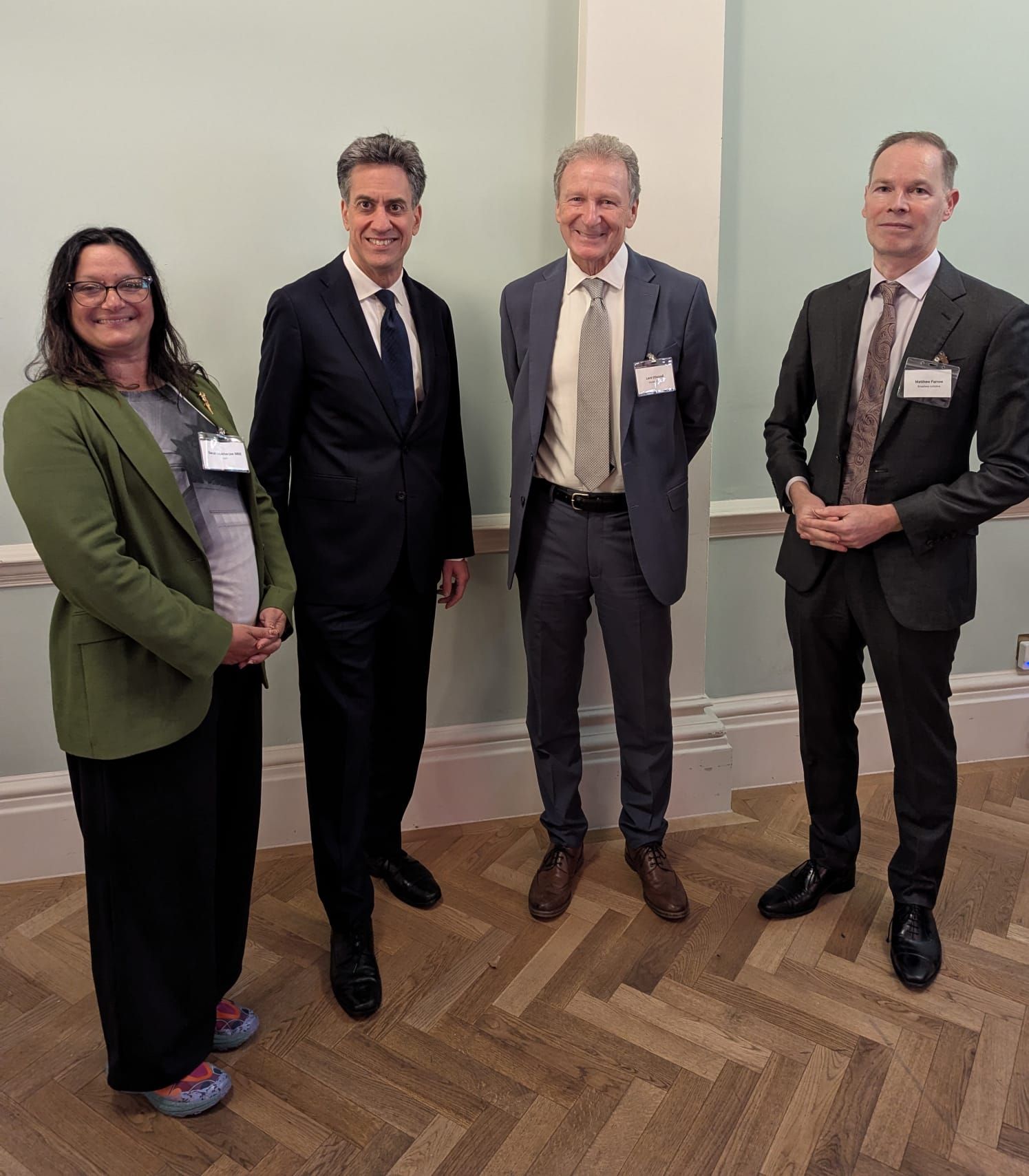A night of optimism and collaboration at the Broadway and ISEP Annual Reception
The event marked the launch of the Net Zero Council’s Sector Transition Plan guidance, setting out how every major sector of the UK economy can co-create a pathway to net zero, supported by business, finance, and government.

It was a full house at the Institute of Sustainability and Environmental Professionals (ISEP) and Broadway Initiative’s Annual Reception, for an evening charged with optimism, energy, and a shared sense of purpose.
Attendees from across government, business, finance, and civil society commented on both the quantity of the turnout and the quality of the conversation. The sense in the room was that the newly published
Sector Transition Plan guidance represents more than a new document: it’s a moment to align effort, policy, and investment behind a common framework for change.
Narrators of Hope
Energy Secretary
Ed Miliband set the tone for the evening, calling on sustainability professionals to be
“narrators of hope” and reminding the audience that clean energy is the economic opportunity of the 21st century.
“We are in the better-lives-today business, not just the disaster-avoidance-tomorrow business,” he said, a line that captured the optimistic spirit of the evening. Quoting Martin Luther King Jr., he added, “King didn’t say I have a nightmare. He said I have a dream,” urging the sector to focus on the positive vision of cleaner, fairer growth rather than the perils of inaction.
Miliband hailed the “incredible diversity” of the climate movement and spoke of the importance of partnership between government and business to deliver the transition. “We welcome this [Sector Transition Pan] guidance which will help businesses and investors identify what needs to be done, where investment is needed, and how we can work together to make the British people better off through homegrown, clean power.”
Unity, Urgency, and Stability
Following an introduction from the evening's host, Lord Gus O'Donnell, the speeches were opened with a call for “unity, urgency, and stability” in the clean energy transition from Rain Newton-Smith, CEO of the Confederation of British Industry.
“Clean energy is the opportunity of a generation. It’s not a cost to cut back on, it’s an investment to maximise,” she said, urging government and business to turn climate action “from a political debate into a partnership for growth, investment, and a fairer, greener economy.”
Emma Pinchbeck, CEO of the Climate Change Committee, built on that message, emphasising that the UK has already made huge progress on emissions reduction and now is the time to scale up and communicate the benefits.
“We need to make electricity cheap again. We’ve reached an inflection point — if we want the transition to gather pace and bring people with us, we need to bring the benefits forward as much as possible.”
Pinchbeck stressed that climate action should be seen as investment rather than cost, and that public support will follow when people see tangible improvements in their own lives from lower bills to new jobs and revitalised local economies.
ISEP CEO Sarah Mukherjee MBE reflected on the shared responsibility that comes with the launch of the Sector Transition Plans:
“We need to focus on capacity building throughout the workforce in every sector, so we have the skills to drive the net-zero transition across the whole economy. Our ambition should be to weave green competences throughout the workforce and make all jobs greener — much in the way digital skills spread across entire organisations in previous decades.”
Her call for a “coordinated, whole-economy approach” captured one of the key themes of the night: that the transition cannot be driven by policy or business alone. It requires both to move in step, ensuring the benefits of the green transition are fair for families today and for generations to come.
Optimism as a Strategy
The night closed with a palpable sense of optimism. “Optimism can be a strategy,” Miliband concluded, to resounding applause. “We can’t plead ignorance and we certainly shouldn’t plead that it’s too late. We are the generation that still has the power to act.”
The Sector Transition Plans launched at the event embody that optimism, a framework for collaboration between sectors, government, and finance to chart credible pathways to net zero. They provide a practical foundation for the “better lives today” vision: cleaner, fairer growth that works for people, nature, and business alike.
The Energy Secretary led the room in a round of applause for Broadway and ISEP. For those of us in the room, it was a welcome moment of recognition, and a reminder that collaboration, not competition, will deliver the future we all want to see. Now the task is to take that energy out into the world: to win hearts and minds, build partnerships, and drive the better-lives agenda across the country.



